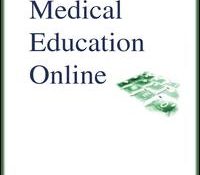eric.ed.gov har udgivet: This paper examines the role of teaching assistants and other personnel on student outcomes in elementary schools during a period of recession-induced cutbacks in teachers and teaching assistants. Using panel data from North Carolina, we exploit the state’s unique system of financing its local public schools to identify the causal effects of teaching assistants and other staff on student test scores in math and reading and other outcomes. We find remarkably strong and consistent evidence of positive contributions of teaching assistants, an understudied staffing category, with larger effects on outcomes for minority students than for white students. A supplemental table is appended. Link til kilde
Like this:
Like Loading...
eric.ed.gov har udgivet: Children who grow up in poverty are less likely to graduate high school, enter college and find economic stability. REAL School Gardens believes the right educational opportunities — ones that engage and motive children to learn — can break this cycle. The REAL School Gardens Program builds learning gardens and offers teacher training to improve academic engagement and performance in low-income elementary schools. Since its launch, REAL School Gardens has partnered with 92 low-income schools, and preliminary findings show that 84% of students experiencing hands-on academic lessons in a REAL School Garden report high levels of engagement, specifically in math in science. Another study demonstrated that REAL School Gardens’ partner schools exhibit, on average, standardized science test score pass rates 5.5% higher than non-partner schools. This article… Continue Reading →
Like this:
Like Loading...
eric.ed.gov har udgivet: The last two decades have witnessed a vast expansion in the use of education data to improve classroom instruction and raise student achievement. Schools and districts face important challenges in implementing increased data use for instructional improvement. One key challenge is the need for teachers and administrators to have “data literacy”–the skills to analyze data, and to use a variety of data sources to refine and improve instruction. Data systems and data initiatives have grown at a much faster pace than educator training around data use. This reality justifies the evaluation of a program such as TERC’s Using Data, which aims to provide teachers with the needed training. A table and figure are appended. Using school-level random assignment, this study seeks to estimate the causal impact of… Continue Reading →
Like this:
Like Loading...
eric.ed.gov har udgivet: This collection of six essays shares insights and strategies from the Education Development Center’s (EDC) work to close opportunity gaps in mathematics education and support teachers in improving instruction. This report includes the following essays: (1) Adam’s World: Reflections on the Achievement Gap; (2) Five Key Characteristics of Effective Diversity Training for Teachers; (3) Ella in Kindergarten: Building on Strengths; (4) Math for All: High-Quality Mathematics Instruction for Students with Disabilities; (5) Supporting English Learners in the Mathematics Classroom; and (6) Helping Children from Low-Income Communities Become Young Mathematicians. Link til kilde
Like this:
Like Loading...
eric.ed.gov har udgivet: This enquiry based project set out to find out if adult English language learners, known as ESOL (English for Speakers of Other Languages) learners in the UK, might benefit, in terms of their acquisition of English, from studying maths. This research has been conducted at a medium sized FE college in the East Midlands where I teach. I evaluate this in two ways, firstly by analysing learners’ results, and secondly by asking experienced ESOL teachers to observe and reflect on an ESOL Maths session. This project found a correlation between attending a maths class and improved English language exam results over 5 cohorts of students. In addition, ESOL teachers noted many and varied opportunities for English language learning in an ESOL Maths class, with higher levels of… Continue Reading →
Like this:
Like Loading...
eric.ed.gov har udgivet: This study used ethnographic methods to understand factors influencing the implementation of an educational intervention combining short math content videos with teacher trainings and mentorship in high-poverty primary schools in Nicaragua with implications for rural school reform. Educators in rural schools in Latin American face serious obstacles to improve classroom instruction and pedagogy, including lack of resources and overcrowding. Research suggests an over-reliance on input-output models in which inputs (e.g. teacher salaries, textbooks, technology, computer labs, numbers of classrooms, etc.) are expected to produce particular outputs (student retention, lowering drop-out rates, increasing graduation rates, etc.); however, studies show that regardless of the resources, much depends on effective use of resources for successful teaching and learning (O’Sullivan, 2006; L. S. Shulman, 1987). While input/output models provide insights into… Continue Reading →
Like this:
Like Loading...
eric.ed.gov har udgivet: State laws and regulations can either help or hinder the ability of school districts to hire effective teachers for STEM (science, technology, engineering and mathematics) subjects. State officials wanting to tackle this critical problem need to begin with a thorough review of relevant policies, asking themselves: “Are we part of the problem, and how do we become part of the solution?” This report presents five steps that states can take to improve the quality and quantity of its K12 math and science teachers: (1) raise standards for what it takes to get into an education school; (2) improve the quality of undergraduate preparation; (3) recognize the need for creative and diverse solutions; (4) send qualified teachers to the schools that most need them; and (5) remember it… Continue Reading →
Like this:
Like Loading...
eric.ed.gov har udgivet: Both Ohio’s state leadership and its foundation community recognized that, to move forward in a global economy, Ohio would need a highly trained workforce that would attract high tech companies to the state. Though STEM shortages have been a pervasive problem for decades, with the election of a new Governor in 2008, there was call to action from state higher education executive officers to address the STEM shortage areas as well as the growing achievement gap. In the years leading up to 2010, the state had significant teacher shortages in ten subject areas, with the greatest need in mathematics, sciences, and special education. These shortages, already severe, were projected to worsen as the state looked to adopt new rules for additional math and science courses required for… Continue Reading →
Like this:
Like Loading...
tandfonline.com har udgivet en rapport under søgningen “Teacher Education Mathematics”: ABSTRACT ABSTRACT This paper considers teachers’ use of data from national school tests. These national tests are part of the Norwegian top-down accountability school system. According to official regulations, teachers have to use the test results to improve learning outcomes even if the test system is not able to deliver necessary data. However, previous research has shown that teachers apply teaching-to-test strategies. The focus of this paper is twofold. First, we ask, ‘How do teachers perceive and interpret the data from national tests?’ Second, ‘How do teachers view their actions related to the data from national tests?’ We base our research on data from semi-structured 5th-grade-teacher interviews. The transcribed text is subject to qualitative content analysis. We find that teachers… Continue Reading →
Like this:
Like Loading...
tandfonline.com har udgivet en rapport under søgningen “Teacher Education Mathematics”: ABSTRACT ABSTRACT Academics often develop software for teaching and learning purposes with the best of intentions, only to be disappointed by the low acceptance rate of the software by their students once it is implemented. In this study, the focus is on software that was designed to enable veterinary students to record their clinical skills. A pilot of the software clearly showed that the program had not been received as well as had been anticipated, and therefore the researchers used a group interview and a questionnaire with closed-ended and open-ended questions to obtain the students’ feedback. The open-ended questions were analysed with conceptual content analysis, and themes were identified. Students made valuable suggestions about what they regarded as important considerations… Continue Reading →
Like this:
Like Loading...

